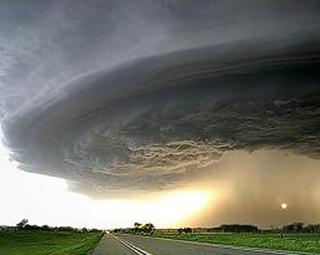A week ago the Shanghaiist asked me if I’d prepare an end-of-year or end-of-decade list of what were for me the top 5 China-related event.
Now that the post has been up on their site a few days, I’m reprinting it here for posterity. These are not necessarily the most important things that happened. The Sichuan earthquake, for example, is more important than some of my other choices. There were too many to choose from, like Sun Zhigang, the tainted milk scandal and Hu’s tremendously important strides in bringing Africa closer to China. Instead, these are the items that touched me on a very personal level, inspiring me to feel joy or outrage, hope or gloom.
From Shanghaiist:
Richard Burger worked in Greater China (mostly the PRC) as a PR executive for more than six years, the last few months of which he spent as editor and columnist for the English-language Chinese daily newspaper The Global Times. He is also the author of one of the oldest and most respected China blogs, The Peking Duck
What a difference ten years has made for China, from the new kid on the block to one of the world’s most influential movers and shakers. Since 2000, China has turned the notion of “New World Order” on its head.
During those 10 years we’ve watched China experience some breathtaking highs and painful lows. I first started watching China early in 2001, when I moved from the US to Hong Kong, and still remember exactly where I was and how I felt when I heard the big news that made it to No.1 on my Personal Five Most Significant China Stories of the decade.
1. July 13, 2001: Beijing is named host city for 2008 Olympic Games
This announcement created a wave of euphoria that only intensified as the Opening Ceremony approached. From the moment it was reported until the Olympic Green was locked down at the end of August 2008 we’ve never seen so many people so motivated for so many years over a sports competition. Nothing since has ever topped this one.
2. April 20, 2003: Chinese government holds live on-air SARS press conference
I know, that sounds kind of dry. But if you were there watching it live you’ll know just how jaw-dropping it was. Some of the world’s most tight-lipped, rarely seen leaders took live questions from the international media pool in Beijing and revealed there were hundreds more known cases of SARS in Beijing than they’d admitted earlier. Afterwards, the minister of health and the mayor of Beijing were fired for negligence of duty and the May holiday was canceled to keep people from traveling. Live and in person, we watched China’s government realize that being a global power demands accountability.
3. April 7, 2008: A Chinese hero is born
It couldn’t have been better scripted by the propaganda department: A graceful young woman, an Olympic torchbearer confined to a wheelchair, is attacked in full public view in Paris by a pro-Tibet activist determined to grab the Olympic torch from her hands. She refuses to yield, using her body to protect the torch as if it were a child. The timing was incredible: China was reeling from criticism of its handling of ethnic tension in Tibet, and photos of the emotionally charged scene galvanized the global Chinese community and created a groundswell of national pride just when China needed it. This sense of commonality and closing rank was to be matched only by the volunteerism generated by the Sichuan earthquake the next month – a close runner-up for this list.
4. June 16, 2009: Chinese court frees Deng Yujiao
The release of Deng Yujiao, the 21-year-old Chinese karaoke waitress turned folk hero who stabbed to death a drunken party official who tried to force her to have sex, resonated with everyone in China. Originally found guilty of murder, her plight captured the imagination of Chinese activists and netizens and her release was historic, proving that with enough pressure from an energized and outraged public the Chinese government will respond to injustices that in the past were swept under the carpet. We’ll know in the year ahead if it truly marked a turning point.
5. June 2009 – present: Post-Olympic communication crackdown
After opening its Internet more than ever before for the 2008 Olympic Games, China took a sharp swerve in the opposite direction the next year. The ominous clouds of heightened censorship moved in prior to the 20th anniversary of the “Tiananamen Square Incident” with the banning of Chinese and English-language social media sites and it kept getting worse right through the October 1 festivities, with no end in sight to this day. Many had misread the April 20, 2003 press conference as a sign China was ready to open up. In some ways it has, but the Internet remains more censored than ever.
###
I know we all have our different picks for a list like this. So feel free to suggest your own.

Comments